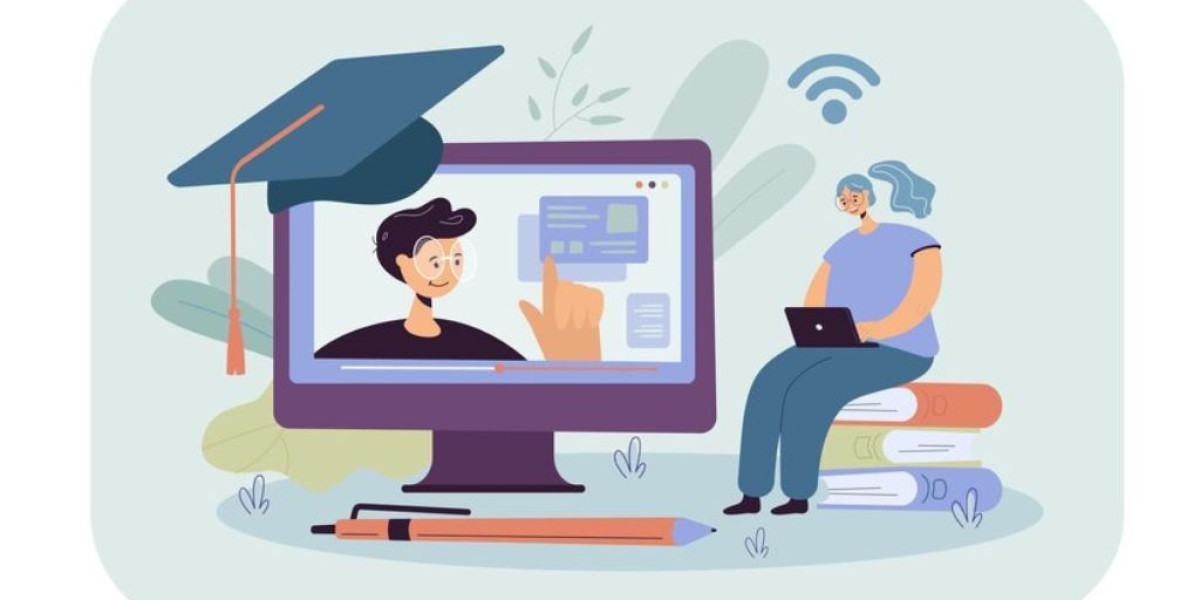In recent years, there has been explosive growth in online learning platforms that allow users to create and sell online courses to global audiences. Chief among these platforms is Udemy, which currently hosts over 180,000 online courses in dozens of languages across various technical and business subjects.
Through open participation models, Udemy and similar sites like Coursera, edX, and LinkedIn Learning have significantly increased access to affordable, lifelong learning opportunities. However, these platforms have also posed new challenges and disruption for the traditional higher education industry.
The purpose of this article is to analyze the economic impacts that Udemy and other major Massive Open Online Course (MOOC) platforms have had on the education sector. Key areas that will be explored include market size and growth trends, impacts on university revenues and delivery methods, new opportunities and pressures for instructors, quality assurance concerns, and the changing role of accreditation.
Growth of the Online Education Market
The online education market has experienced phenomenal growth rates in recent years that now dwarf traditional campus-based enrollments and revenues. According to reports from market research firm HolonIQ, the global MOOC market earned around $1 billion in 2021 and is projected to grow to over $20 billion by 2026.
This compares to total global annual revenues of around $6 billion for the higher education publishing industry that supplies traditional textbooks. Meanwhile, enrollments in MOOC programs have ballooned from a few million registrations a decade ago to over 350 million annual registrations today across all major platforms combined.
User penetration of these services has risen to around one in 15 people globally having participated in an online course. Sustained double-digit growth rates are expected to continue as more populations gain reliable internet access and the skills demanded by the job market evolve rapidly.
Increased Access to Lifelong Learning
By enabling self-paced, affordable learning anytime and anywhere through mobile apps and websites, platforms like Udemy have made education dramatically more accessible worldwide. This has in turn supported the rising demand for lifelong learning to continuously adapt one's skills through career and industry changes.
The ability to take occasional courses across diverse subjects on a mobile phone for only a few dollars each has opened educational opportunities to people of all ages who otherwise could not pursue traditional degrees. For example, professionals looking to transition careers midlife or adapt to new technologies.
This flexibility also helps address gaps in addressing the training and upskilling needs of a rapidly evolving job market. By some estimates, over half the skills required for occupations today will change significantly by 2030. MOOC platforms are playing a key role in equipping more people with in-demand digital and technical skills outside of traditional degree programs. Visit Zipprr: https://zipprr.com/udemy-clone/
Cost Savings for Students
One of the primary advantages of MOOC-based online learning is the significantly lower costs compared to traditional campus-based education. At major universities in the US and Europe, a single masters degree program can easily total $30,000-$100,000 in tuition fees alone.
In stark contrast, popular courses on Udemy range from only $10-$40 each with most basic technical or language courses priced under $20. Even specialty programs and certificate courses rarely exceed a few hundred dollars. This has immense implications for expanding access through affordability alone.
The cost savings have motivated millions of students globally to opt for online micro-credentials over formal degrees just to achieve competency in specific skills, especially as employers increasingly value demonstration of abilities over degrees themselves. This has especially benefited non-traditional student populations.
New Sources of Revenue for Instructors
In a major shift, online learning platforms have also created new revenue streams and entrepreneurial opportunities for instructors. In the traditional model, the primary path to teach has been through full-time university positions requiring advanced degrees and credentials.
However, through platforms self-publishing courses, anyone with expertise can become an online educator. Popular instructors on Udemy for example earn thousands of dollars per month from royalty percentages on course sales and upgrades. Some have scaled their side businesses into six-figure annual incomes.
This newfound ability for anyone anywhere in the world to create and sell online courses as independent contractors has in turn created many new teaching jobs. It has become a viable side entrepreneurship for professionals to impart specialized knowledge and generate secondary incomes through their expertise.
Competition for Traditional Universities
While expanding access to education globally, MOOC platforms have also posed challenges of disruption and competition for traditional universities. By bringing affordable alternatives, they threaten to siphon off potential tuition fee revenues that may have otherwise been directed to on-campus Masters programs.
Especially for professional degrees where the coursework is amenable to an online modular format and student motivations are skills acquisition versus traditional collegiate experiences. Various surveys show a portion of students enrolling in MOOC micro-credentials instead of formal degrees for this reason.
The low barriers to entry of self-publishing courses also mean almost unlimited globally scalable competition. Universities now must effectively market the value of intangible elements integral to the campus experience like networking, research opportunities, and credential reputations to appeal students.
Pressures on Pricing at Universities
In response to the rising competitive pressures, traditional universities face increasing demands to control tuition fee inflation and deliver more cost-effective education. Those slow to innovate risk losing further market share to lower-cost flexible online options.
While a four-year campus degree experience remains invaluable to many, others are only willing to pay premium costs if a program yields clear career outcomes and return on investment. As such, the past decades' double-digit tuition increases year-over-year have become less defensible for universities.
It has driven many to explore hybrid delivery models, prioritize career services, and leverage online platforms within degrees to offer bundles integrating the best of physical and digital learning. For example, reducing on-campus time through flipped classroom formats supplemented by online coursework.
Changing Delivery Methods at Universities
Incorporating online components and leveraging established MOOC platforms is one of the clearest ways universities have responded to increased competition. Many leading institutions partner with providers to offer select undergraduate courses and full online Master's degrees.
For example, participating in the popular edX consortium allows flagship state schools to extend affordability and access to prestigious programs internationally. Others use the content and infrastructure of Coursera or FutureLearn for credit-bearing MOOCs integrated within degree plans.
This helps diversify revenues through continuing education enrollments from working professionals alongside full-time campus-based students. It also enhances the student experience and outcomes through blended models combining online flexibility with campus immersion periods.
Overall, the rise of online education has driven significant modernization of traditional universities to stay relevant through curriculum innovation, digitization, and more personalized learning approaches versus cookie-cutter lectures. The frontiers of educational technology continue expanding rapidly as a result.
Impact on Revenue Streams for Publishers
As more course content and teaching materials transfer online through platforms, it threatens traditional textbooks and the billion-dollar publishing industry underpinning higher education. Interactive digital content hosted within MOOCs is often provided to students for free or very low subscription costs.
While publishers have since expanded into digital formats, the shift to modular online courseware disrupts the high-margin captive market reliant on bundled packages of print materials tied to specific courses. Enrollments in zero/low-cost online courses that require no material purchases severely undermine this business model.
In response, leading publishers are developing new subscription-based library services and competitive interactive e-book/courseware products. They are also focusing on high-quality, customizable OER (open educational resources) to partner with universities and stay relevant in the digital transformation of pedagogy.
Overall, online education has been a major disruptor to the traditional revenue streams generated from students through standardized textbooks and materials. Adaptation remains ongoing across the industry.
Job Prospects for Instructors
The evolution of education delivery methods has significant impacts on the training and career prospects for instructors as well. Traditional university faculty career paths centered around research, publishing, and lecturing within degree programs.
Meanwhile, the rapid growth of online teaching opportunities through MOOC platforms has increased demand for instructors with strong presentation skills and abilities to engage diverse learners through technology. Skills like instructional design, learning analytics, multimedia production have become increasingly valuable.
However, without access to technology, professional development, or willingness to adopt new pedagogies, some existing university faculty face risks of diminished roles. There are also concerns platforms may replace academics with lower-cost independent contractors in the future if regulatory standards change.
As such, ongoing reskilling of educators remains crucial through faculty development programs integrating lessons from educational psychology research and new tools enabling constructivist approaches at scale online. The careers best supported going forward blend research, teaching across modalities seamlessly within a framework acknowledging changed learner demands and industry needs.
New Quality Assurance Challenges
While increasing access to education significantly, the enormous scale and diversity of self-published content across MOOC platforms also introduces major challenges around quality assurance and standardization. With over 180,000 courses available on Udemy alone, effective validation and rating systems become imperative.
However, approaches to review and certify the learning value and accuracy of every program are still evolving. Platforms like Coursera address this partially through university partnerships vetting their content. Others rely more heavily on peer reviews, student ratings,
and instructor credentials which can vary widely in robustness. Ensuring educational equity and consumer protections remains an ongoing priority as the space rapidly scales.
Standardizing outcome metrics like completion rates, assessments, and employment outcomes tracking will also be important for platforms to evaluate effectiveness over time. Accreditation bodies are exploring frameworks to systematically assess learning quality across various online modalities.
Areas of focus include pedagogical design, interaction quality, academic integrity, and providing certification pathways for top-performing independent instructors. As the online ecosystem matures, quality oversight will grow increasingly important to its credibility and ability to truly expand opportunity through education.
Accessibility/Inclusiveness Concerns
While opening new doors, the digital nature of online learning also risks exacerbating pre-existing inequality challenges if not addressed properly. Global internet and device access along with digital literacy rates remain uneven, potentially limiting the accessibility of MOOCs for underprivileged groups.
Language support beyond English also needs strengthening on many platforms to welcome global learners. Additional efforts are required by providers, governments, and social sector organizations to close participation gaps through affordable connectivity initiatives, multi-lingual content investments, and proactive outreach.
Universal design principles that proactively accommodate diverse learners must also be reinforced. This includes considerations for disabilities, varied work/life schedules, as well as cultural relevancy of examples. Ensuring no demographic is left behind as technology transforms education delivery will be an ongoing emphasis area industrywide.
Role of Accreditation
As online credentials expand rapidly in variety and volume, the role of accrediting agencies and standards bodies in vetting program legitimacy has become increasingly important. This helps ensure the value and portability of qualifications earned in the eyes of educators and employers.
Regional accreditors have developed new guidelines for competency-based online/blended programs, but challenges remain in systematically assessing less standardized credentials outside traditional degrees. Tracking the integrity and outcomes tracking of MOOC micro-credentials will require maturity and buy-in across platforms.
International cooperation on quality standards is also warranted as digital learning crosses borders freely. Outcome-based qualifications frameworks offering transparency on what skills are covered by different credentials could help bring order. Overall, accreditation will play a key role in building trust as new educational models continue emerging at exponential rates online.
Conclusion
In conclusion, the rise of Udemy and other online learning platforms has greatly disrupted traditional models while expanding opportunities for skills development globally. Although posing competitive pressures, it has also driven positive innovation across higher education through new blended delivery approaches integrating technology strengths.
Job markets are being fueled with affordable micro-credentialing enhancing productivity as core skills evolve rapidly. Standards and scaling challenges remain in assuring educational equity and quality at the immense scale of digital learning. As partnerships mature between universities and platforms, more coherent ecosystems integrating campus immersion and flexible digital upskilling are taking shape industrywide.
Overall, online education has established itself as the future of lifelong learning with ongoing refinement of approaches through open collaboration across sectors. When guided by student success, inclusion and integrity, its potentials for transforming lives are vast. Continued progress on these fronts will shape opportunities and careers for both current and future generations worldwide.







